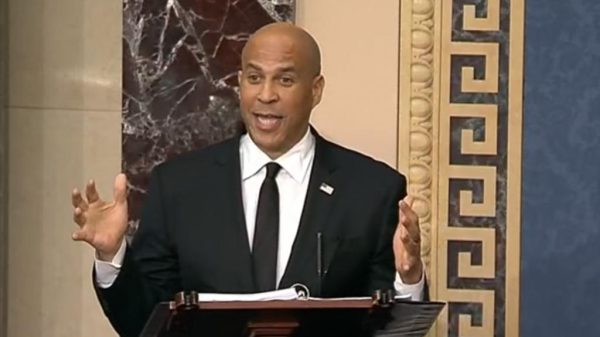A federal appellate judge has ruled that the federal government must stop removing razor wire barriers from the Texas border.
The ruling is a temporary measure while the legal fight over the barriers proceeds — a recognition that the federal government must wait to remove the barriers until a federal judge issues a decision on the matter.
“Defendants are ENJOINED during the pendency of this appeal from damaging, destroying, or otherwise interfering with Texas’s [concertina]-wire fence in the vicinity of Eagle Pass, Texas, as indicated in Texas’s complaint,” the court wrote .
The terrestrial and floating razor wire barriers have been the subject of a court battle between Texas Gov. Greg Abbott (R) and the federal government since Abbott ordered them installed in the middle of the Rio Grande as part of Operation Lone Star in September.

“Given the ongoing disaster at the southern border due to the federal government’s intentional actions, more than ever it is necessary to take every step we can to hold the line,” the attorney general added.
Abbott and his allies, including Paxton, have sought to cast President Biden as pursuing an “open border policy,” despite migrants being four times more likely to be deported under Biden than they were under former President Trump.
The federal government, which claims authority to regulate border policy and the nation’s navigable waters, ordered the state to remove the barriers — and in September a federal appellate judge agreed that the state’s claim that it was suffering invasion didn’t justify it usurping federal authority on border enforcement.
But Paxton had better luck when he challenged moves by the federal Department of Homeland Security to destroy the concertina wire that Texas had set up along the border. Paxton sued the federal government in October and also asked the courts to halt the wire removals while the case played out.
From there, Paxton’s lawsuit followed a zigzag now familiar from border and abortion cases: a dismissal of the state’s claims by a local federal district court, followed by an appeal by the state to a higher court — in this case the 5th Circuit Court of Appeals.
The initial ruling in the case determined the U.S. Government had “repeatedly ‘damage[d], destroy[ed], and exercis[ed] dominion over state property’ and ‘show[ed] that they intend to prevent [Texas] from ‘maintaining operational control over its own property,’” — but still rejected the state’s effort to stop the barriers from being removed on the grounds that the federal government has “sovereign immunity” on border issues.
That’s an idea that the 5th Circuit has shown some sympathy for — earlier this month, the court upheld a lower court’s ruling ordering Texas to remove floating barriers it had placed in the international waters of the Rio Grande.








































